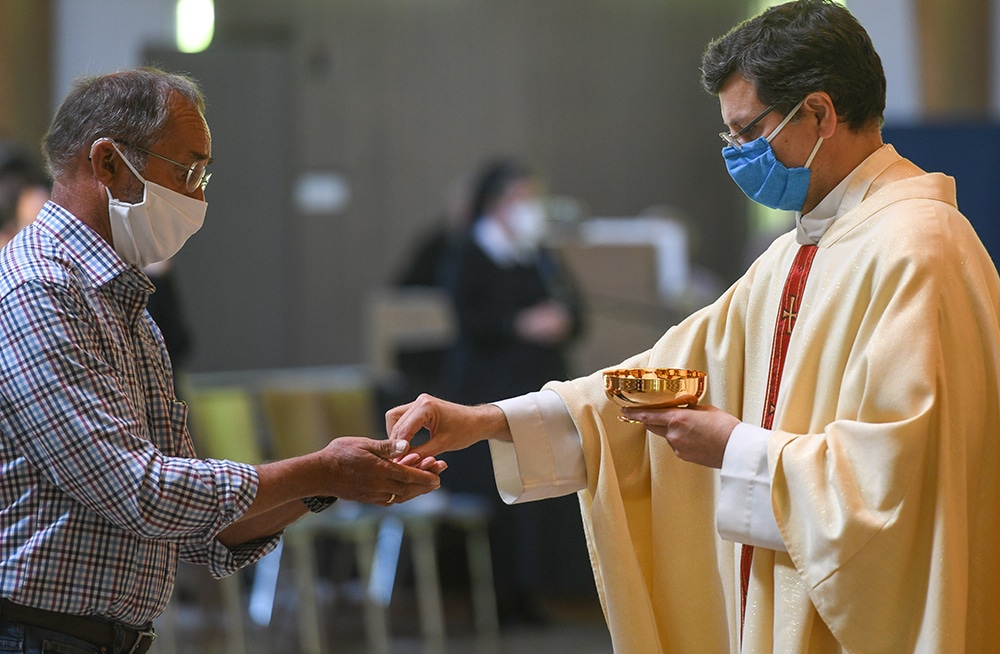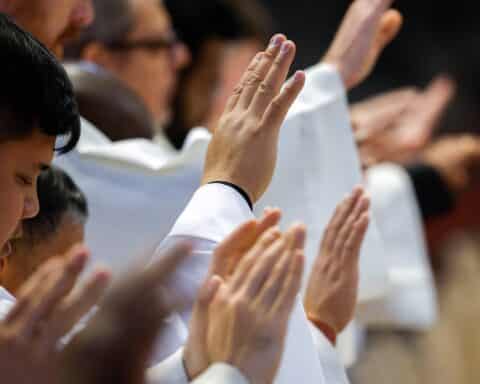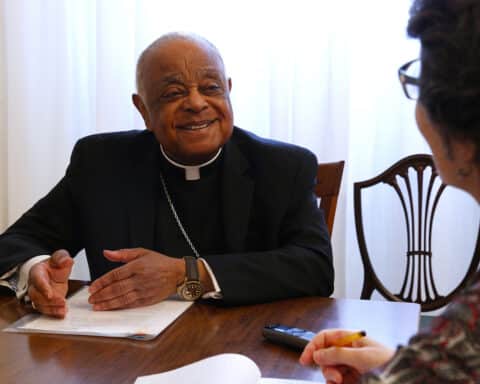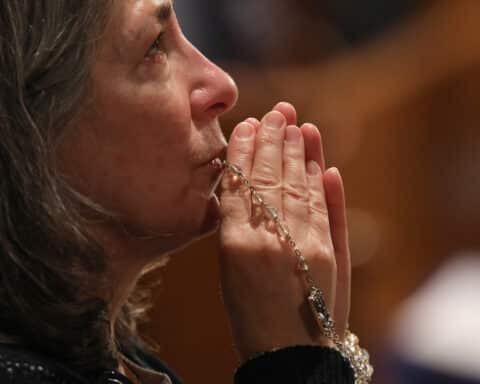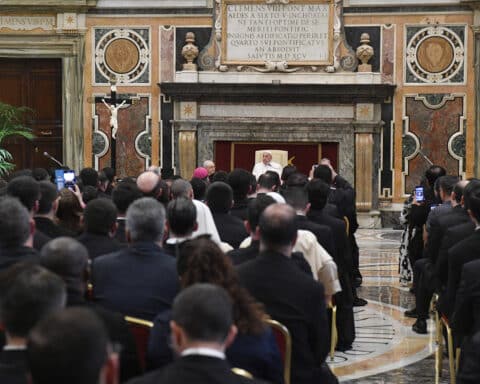
— Mike Helmick, via email
Answer: There is no canon law forbidding priests to wear masks when administering the sacraments. I have on many occasions visited patients in the Intensive Care Unit and been required to wear protective gear such as a smock, face mask and gloves. While it is not the norm, as you point out, there are exceptions. In the current pandemic, most bishops require the clergy and the faithful to wear masks and socially distance. In most places the celebrant is able to remove the mask when preaching and praying the prayers. Lectors, too, can remove the mask when reading. However, when the priest moves into close proximity with the congregation such as during processions or distributing Communion, he is usually required to wear a mask. In distributing holy Communion, he is also required in most places to purify his fingers regularly with alcohol. An additional precaution taken by many priests is to keep the hosts he is consecrating in a covered ciborium if he does not wear a mask curing the Eucharistic Prayer.
These are widespread norms priests are expected to follow. While some priests and others are dubious as to the effectiveness of masks, priests ought to remember that they represent more than themselves. They are the face of the Church to many, and the Church wants to present what most perceive to be a safe environment where reasonable precautions are being taken. In this way more people will feel comfortable about returning.
Praying for the dead
Question: I regularly pray for the souls of the dead by naming them, very often those whom I knew not to have been churched or who lived unchristian lives. However, I came across some Catholic media that say that praying for those who did not die a Christian death is a waste of time, citing Pope St. Gregory the Great and St. Francis Xavier. I also know that Our Lady of Fátima said that many souls end up in hell because they had nobody to pray or make sacrifices for them. What is your take on this matter?
— Peter Selo, via email
Answer: It is fine to pray for anyone who has died, and it is certainly not a waste of time. While it is true that no one is saved except by Jesus Christ, it is also true that God is just and will judge people on what they could have reasonably known and acted upon. While it is harder to be saved apart from explicitly embracing the full practice of the Catholic Faith, the Church leaves the final judgment on such matters to God. These judgments are hidden from us, and so we are right to pray for all the dead. Even those who lived a wicked life and died committing a crime may have repented as they lay dying and thus did not go to hell but to purgatory.
If the soul we pray for has in fact gone to hell, they cannot benefit from our prayers. But this does not make our prayer a waste of time. Rather, our prayer goes into the Church’s treasury of merit and is applied as God sees fit.
As for the remarks of Our Lady at Fátima, she is referring to people who are still living and reminding us to pray for them. No one goes to hell from purgatory.
In this month of November, we do well to pray for the dead. Since the Lord Jesus said that we must be made perfect as the heavenly Father is perfect (cf. Mt 5:48), and since few die in that kind of perfection, most souls do go through a period of purification after death so that God, who began a good work in them, may bring it to completion (cf. Phil 1:6) Too many Catholics today neglect this spiritual work of mercy and rashly conclude their loved ones have gone straight to heaven. This is usually a wrong presumption and deprives many souls of prayers and works that can help them. Do not overlook their need for prayer at this time so that, when they do enter heaven, they will in turn offer many prayers for you!
Msgr. Charles Pope is the pastor of Holy Comforter-St. Cyprian in Washington, D.C., and writes for the Archdiocese of Washington, D.C. at blog.adw.org. Send questions to msgrpope@osv.com.

